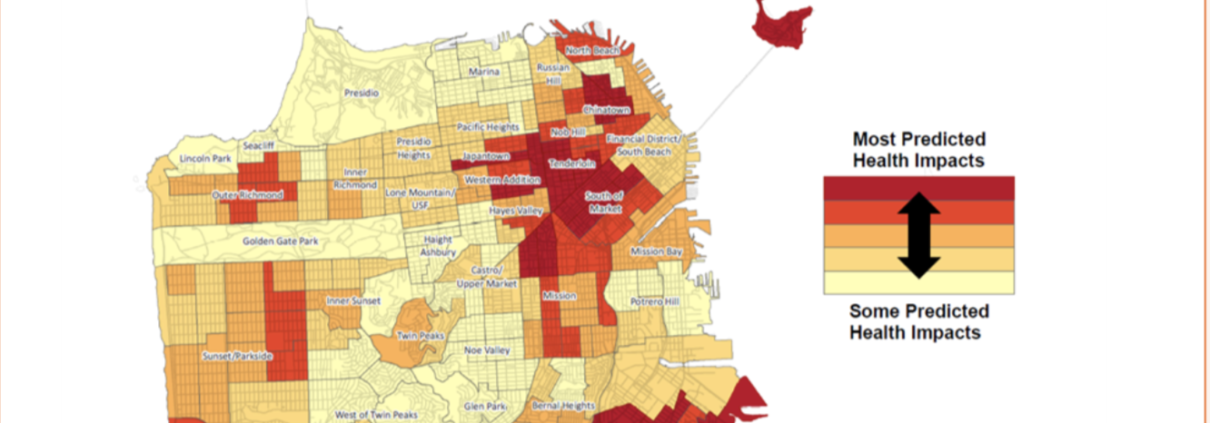Clinician Climate Change and Health
The San Francisco Department of Public Health’s Climate and Health Program is excited to announce the release of Climate Change and Health Training Modules for clinicians in San Francisco’s hospitals and health centers!
Climate change is one of the greatest public health challenges of the 21st century. In San Francisco, climate change means more extreme heat, extreme storms and sea level rise, and wildfires and air pollution— and these climate impacts have significant and cascading effects on public health. Although all San Franciscans will be impacted by climate change, not all San Franciscans will suffer these impacts evenly. The unequal distribution of climate health impacts means that populations that already carry a significant health burden are the same populations expected to be most affected. While the breadth of climate change’s causes and effects mandates action from all sectors of society, the healthcare sector in particular will be at the forefront of climate health resilience efforts. Clinicians are often the first-point-of-contact to vulnerable populations, and will be increasingly expected to identify and treat climate-related health impacts, help patients prepare for future climate-related health impacts, and connect patients to available local, state, and federal climate preparedness resources.
The Clinician Climate and Health Training Modules will cover:
- Global Climate Change and Local Health Impacts will introduce climate change and climate science, and summarize local climate impacts, how climate impacts will affect public health, which San Franciscans are most vulnerable to these health outcomes, and a brief history of SFDPH engagement on climate resilience.
- Clinician Climate Health Best Practices will inventory best practices for clinicians to approach climate adaptation and preparedness with their patients. An objective of this module is to connect clinicians with established local, state, and federal resources including outreach and engagement material, local and available programs and policies, and opportunities for further research.
- Sustainability and the Health Sector will examine the role of the health care sector in climate resilience. The module will focus on opportunities for individual-level or systemic changes to reduce greenhouse gas emissions, water use, waste, and toxics, as well as identify health co-benefits associated with land use, transportation, healthy food, and green infrastructure.
How Can I Access These Modules?
For physicians who wish to receive continuing medical education credits: UCSF has accredited these courses to provide 1 AMA PRA Category 1 Credit. The Climate and Health Program will cover the costs for these credits for the first 200 users. If you wish to receive CME credits, please access the UCSF learning portal.





